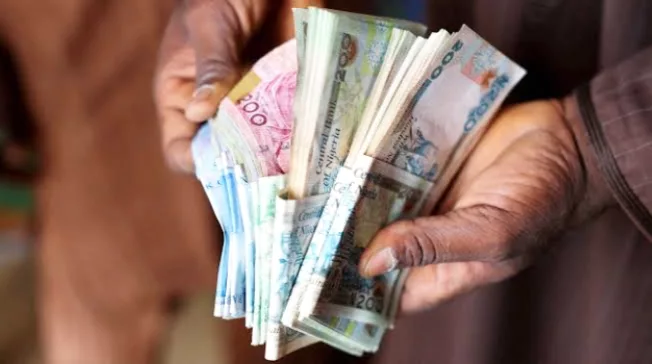It is an inexorable fact that the strength of a country’s economy, its prosperity and standing in international affairs, can be measured by the value of its currency in terms of trade and other business transactions. The confidence in a given currency or lack of it, in some cases, result in capital flight that ends up worsening the plight of the affected medium of exchange and, ultimately, the country itself.
The Naira, Nigeria’s currency, is facing this challenge of loss of confidence for which it has outrageously been devalued with the resultant increase in the cost of goods and services. This has made it difficult for businesses to plan and thrive leading to a decrease in production capacity, rising inflation and an upward swing in the citizen’s cost of living.
A worse phenomenon impacting on the currency is the incidence of capital flight which has also led to a decrease in foreign investment in Nigeria. Generally, investors are wary of investing in a country where the currency is unstable and the government is unable to control the key performance indices (KPIs). This has resulted in a decrease in job opportunities, as companies are unable to expand their operations due to the lack of investment.
Capital flight is a term used to describe the movement of funds from one country to another. This is often done by investors and individuals who seek to take advantage of better investment opportunities in other countries. Unfortunately, capital flight has become a major problem in Nigeria, and is inflicting severe injury on the Naira and by extension and implication, the economy generally.
Over the years, Nigeria has witnessed a significant amount of capital flight. This has resulted in the depletion of the country’s foreign reserves, which has, in turn, affected the value of the naira. The naira has lost value against major currencies such as the US dollar, the Euro, the British pound and shockingly, the CFA.
At Independence, in 1960, the Nigerian pound exchanged at $0.71. After the introduction of naira in 1973, the new currency exchanged at N1 to $0.62. The Babangida military regime marked a turning point for the nation’s currency. Naira suffered a massive devaluation, exchanging at $1.75 to the naira in 1986. The structural adjustment policies that the regime pursued under the tutelage of the International Monetary Fund (IMF) and World Bank saw the naira fall to N22 to the dollar by 1994.
Interestingly, the Abacha regime held the dollar at one position until his death. It is something that the current government needs to investigate and adopt. During his regime, the dollar experienced a significant gain against the naira, reaching $1/N22.33, with a slight devaluation to N21.89. This exchange rate remained relatively stable until his death on June 7, 1998.
The regime of Gen. Abdulsalami Abubakar successfully maintained this exchange rate until he transmitted power to a democratically elected government on May 29, 1999. Former President Olusegun Obasanjo met it at N21.89/$1. Within a year, the naira fell to N85.98/$1, and before he left office in 2007, one dollar was valued between N120 to N125. Today the naira is on a free-fall, exchanging at N1,500/ $.
As a newspaper, we believe that one of the ways the government can strengthen the naira is to take concrete steps towards diversifying the economy. Nigeria is heavily dependent on oil revenue, which makes the country vulnerable to fluctuations in oil prices. The government needs to explore other sectors of the economy, such as agriculture, manufacturing, and tourism. This will create jobs, increase foreign exchange earnings, and reduce the country’s dependence on oil revenue as well as enhance the Gross Domestic Product (GDP).
The government, as a matter of utmost urgency, must give verve to the policy of ease of doing business. At the moment, it’s all lip service. This, it can do, by creating a conducive business environment such as improving the state of infrastructure, providing incentives for foreign investors, their local collaborators, and implementing policies that will protect investments so attracted. This will bring in foreign exchange, which will strengthen the naira.
The nation must also make it a duty to increase the foreign reserve because it serves as a buffer against external shocks and helps to stabilize the currency. The government can achieve this by increasing exports, reducing imports, implementing policies that will attract foreign exchange inflows and improving productivity.
The danger posed by capital flight to Nigeria’s economy is real; it is killing the naira and has made it lose value. The government needs to take urgent steps to address the underlying causes of capital flight and implement policies that will encourage foreign investment in Nigeria as one of the ways of healing the ailing national currency. Failure to do so will result in further devaluation of the naira and a decrease in the standard of living of Nigerians.





